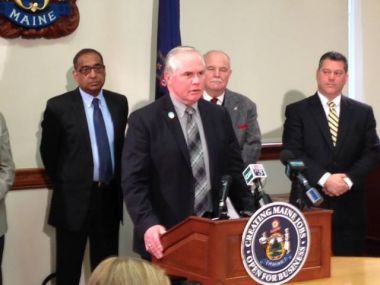Maine's lawmakers mull Indiana-like religious freedom law

A lawmaker in Maine has proposed a bill whose provisions are similar to previous Religious Freedom Restoration Acts (RFRAs) passed by Indiana and Arkansas.
Indiana's RFRA was signed into law by State Governor Mike Pence on March 27.
Gov. Pence amended the law on April 2 to specifically prohibit discrimination against the LGBT community in businesses and workplaces after critics cried foul over possible widespread discrimination as a result of the RFRA.
Governor Asa Hutchinson of Arkansas also signed on an amended version of his state's own RFRA on April 2, one day after he refused to sign the initial version on grounds that it did not conform to the federal government's RFRA.
Gov. Hutchinson also faced pressure from Wal-Mart, the world's largest retailer which is based in the state, to veto the bill.
Both RFRAs would have allowed individuals to refuse to render services on the basis of their religious beliefs, and to cite these beliefs as a defence in legal action.
The Bangor Daily News (BDN) last week obtained a draft of the Maine bill, authored by Sen. David Burns and titled "An Act to Enact the Preservation of Religious Freedom Act," which aims to prohibit the "state, county and municipal" governments from indirectly or directly putting substantial burden on any person's free exercise of religion unless required by compelling governmental interest.
The Act will also empower individuals to pursue legal action if they feel that the government is exerting pressure on their religious freedoms, or to use those freedoms as a defense if faced with a suit themselves.
A representative for the American Civil Liberties Union (ACLU) in Maine criticised the bill.
"We have good laws that protect the exercise of religion. The goal of [bills like this]... is ... to let people get out of compliance with nondiscrimination laws," Oamshri Amarasingham, public policy counsel for the ACLU of Maine, told BDN last week.
Carroll Conley, executive director of the Christian Civic League of Maine, told BDN that Burns' law is not about discrimination. Conley argued that the law only limits the government's ability to infringe on people's religious freedoms to situations "when it's absolutely necessary."











